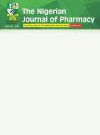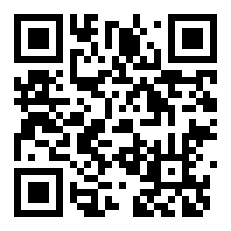Perceptions and Challenges of Conducting Research among Undergraduate Pharmacy Students in University of Ilorin
Keywords:
Perception, Challenges, Research, Undergraduate, Pharmacy StudentsAbstract
Background: Active participation of students in research projects will enhance acquisition of critical thinking and problem-solving skills. The aim of the study was to assess the perception of and identify challenges in conducting research among pharmacy students at University of Ilorin, Nigeria.
Methods: The study was a cross-sectional survey of fourth- and fififth-year pharmacy students aged between 16 and 30 years, selected by non-random purposive sampling technique. Bachelor of pharmacy students who have been exposed to research activities and spent 4-5 years of continuous study were included while postgraduate students were excluded from the study. Information on their perceptions of and challenges in conducting research were obtained using a structured, self-administered questionnaire. Data was collated and analyzed using SPSS version 25. Descriptive statistics (mean, percentages and frequencies) were used for presentation of data.
Results: The sample size for the study was 114 and a total of 100 students answered the questionnaire with a response rate of 87.72%. A total of 46 and 54 students in fourth- and fififth- year respectively participated in the study. Majority of the respondents were females (57%). The mean age of the respondents was 22.24±3.48 years. Most of the students (87%) had interest in research while (13%) revealed they had no interest in research. In addition, 78% of the respondents acknowledged research made students to be active learners and critical thinkers, (73%) agreed research work encouraged them to be problem solvers and innovators. Majority of the respondents (96%) revealed that there was inadequate preparatory courses/scientifific training and facilities to carry out research projects. More than half of the respondent (61%) were of the opinion that the time allotted for research work/projects was grossly insufficient.
Conclusion: Pharmacy student's perception of research was positive and they also recognized challenges that hindered effffective conduct of research projects. Addressing these challenges could potentially enhance the acquisition of research and problem-solving skills by pharmacy students.
References
Government of Nigeria. Pharmacist Council of Nigeria, Act 91 of 1992 (Now Act P.17, LFN 2004), Law of Federal Republic of Nigeria, 2004.
Parker J. (2018) Undergraduate research, learning gain and equity: the impact of final year research projects. Higher Education Pedagogies 3(1):145-157.
Gleason BL, Peeters MJ, Resman-Targoff BH, Karr S, McBane S, Kelley K, Denetclaw TH (2011). An active-learning strategy primer for achieving abilitybased educational outcomes. American Journal of
Pharmaceutical Education 75(9): 186. http://doi.org/10.5688/ajpe759186
Turk T, Al Saadi T, Alkhatib M, Hanafi I, Alahdab F, Firwana B, Al-Moujahed A. (2018) Attitudes, barriers, and practices toward research and publication among medical students at the University
of Damascus, Syria. Avicenna Journal of Medicine 8(1): 24. https://doi.org/10.4103/ajm.AJM_116_17
Bahadori M, Momeni K, Ravangard R, Yaghoubi M, Alimohammazdeh K, Teymourzadeh E , Mehrabi TA. (2014) Challenges of the Health Research System in a Medical Research Institute in Iran: A Qualitative Content Analysis. Global Journal of Health Science 7(1), https://doi.org/10.5539/gjhs.v7n1p69
Burton H, Walters L. (2013) Access to Medicare-funded annual comprehensive health assessments for rural people with intellectual disability. Rural Remote Health 13(3): 2278. Retrieved from http://www.ncbi.nlm.nih.gov/pubmed/23952526
Acharya KP and Pathak S. (2019) Applied Research in Low-Income Countries: Why and How? Frontiers in Research Metrics and Analytics. https://doi.org/10.3389/frma.2019.00003
Hancox D, Shaw JA. (2006) Report on Pharmacy undergraduate research projects: Experiences of the
University of Auckland. Pharmacy Education 6(3): 209 - 214. https://doi.org/10.1080/15602210600700400
Seymour E, Hunter AB, Laursen SL, DeAntoni T. (2004) Establishing the benefits of research experiences for undergraduates in sciences: First findings from a three-year study. Science Education 88(4):493-534. https://doi.org/10.1002/sce.10131
Hunter A, Weston T, Laursen S, Thiry H. (2009) URSSA: Evaluating student gains from undergraduate research in sciences. Council of Undergraduate Research (CUR) Quarterly 29, 15-19.
Lopatto D. (2010) Undergraduate research as a high-impact student experience. Peer Review 12(2),
-30.
Kuh GD. (2008) High-impact educational practices: What they are, who has access to them and why they matter. Washington DC: Association of American Colleges and Universities 14(3), 28-29, 2008
Lopatto D. (2006) Undergraduate research as a catalyst for liberal learning. Peer Review 8(1), 22-25.
Laursen S, Hunter AB, Seymour E, Thiry H, Melton G. (2010) Undergraduate research in the sciences. Engaging students in real sciences. San Francisco, CA: Jossey- Bass P41-65.
Bolariwa OA. (2015) Principles and methods of validity and reliability testing of questionnaires used in social and health science research. Nigerian Postgraduate Medical Journal 22(4), 195-201.
Griffiths R. (2004) Knowledge production and the research-teaching nexus: the case of the built
environment disciplines. Studies in Higher Education 29(6), 709 - 726. https://doi.org/10.1080/0307507042000287212
Bhagavathula A, Bandari D, Tefera Y, Jamshed S, Elnour A, Shehab A. (2017) The Attitude of Medical
and Pharmacy Students towards Research Activities: A Multicenter Approach. Pharmacy 5(4):55. https://doi.org/10.3390/pharmacy5040055
Kritikos VS, Carter S, Moles RJ, Krass I. (2013) Undergraduate pharmacy students' perceptions of
research in general and attitudes towards pharmacy practice research. International Journal of Pharmacy Practice 21(3): 192 – 201. https://doi.org/10.1111/j.2042-7174.2012.00241.x
Amin TT, Kaliyadan F, Al Qattan EA, Al Majed MH, Al Khanjaf HS, Mirza M. (2012) Knowledge, attitudes and barriers related to participation of medical students in research in three Arab Universities. Education in Medicine Journal 4(1). https://doi.org/10.5959/eimj.v4i1.7
Imafuku R, Saiki T, Kawakami C, Suzuki Y. (2015) How do students' perceptions of research and approaches to learning change in undergraduate research? International Journal of Medical Education, 6: 47 - 55. https://doi.org/10.5116/ijme.5523.2b9e
Vujaklija A, Hren D, Sambunjak D, Vodopivec I, Ivaniš A, Marušić A, Marušić M. (2016) Can Teaching Research Methodology Influence Students' Attitude Toward Science? Cohort Study and Nonrandomized Trial in a Single Medical School. Journal of Investigative Medicine 58(2):282–286.
https://doi.org/10.2310/jim.0b013e3181cb42d9
Madan CR, Teitge BD. (2013) The benefits of Undergraduate Research: The Students' Perspective.
The Mentor: An Academic Advising Journal Vol 15. https://doi.org/10.26209/MJ1561274

Views | PDF Downloads:
584
/ 282
/ 0
Published
How to Cite
Issue
Section
License

This work is licensed under a Creative Commons Attribution-NonCommercial 4.0 International License.


